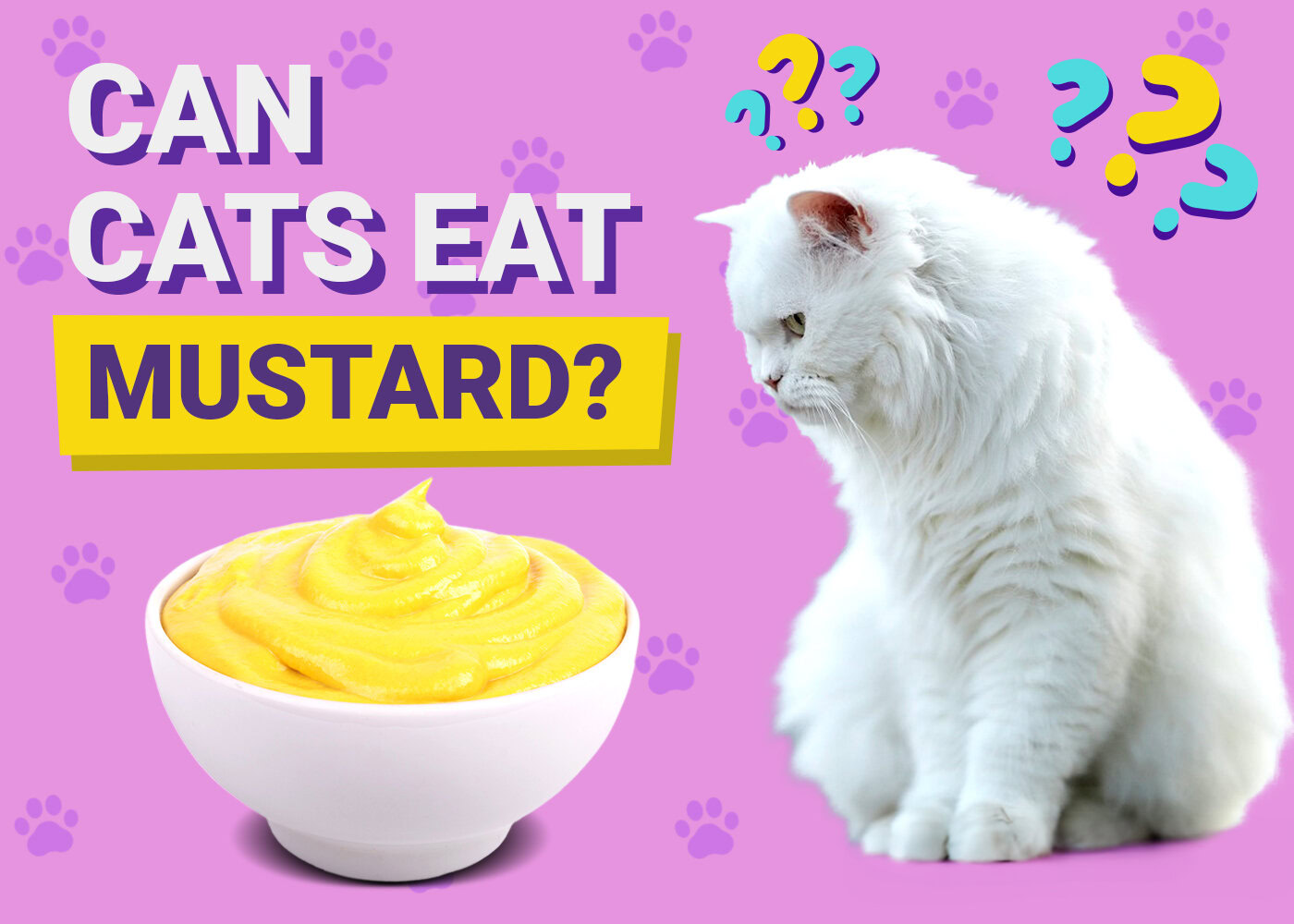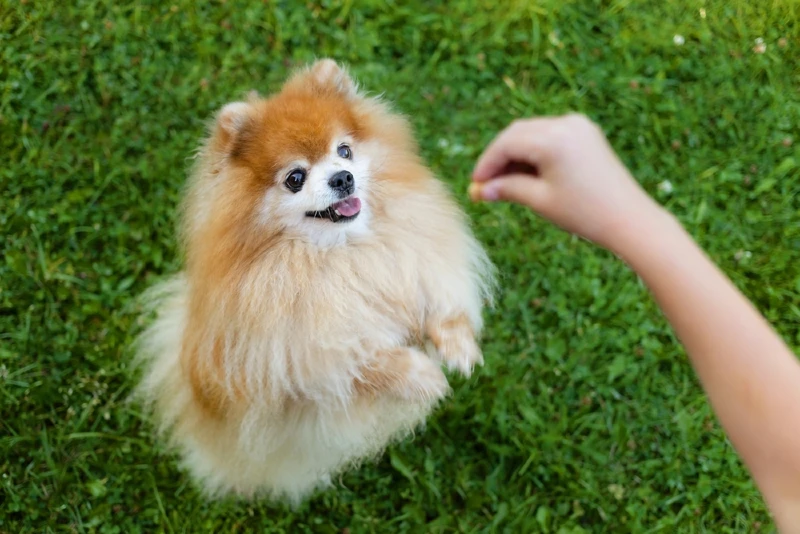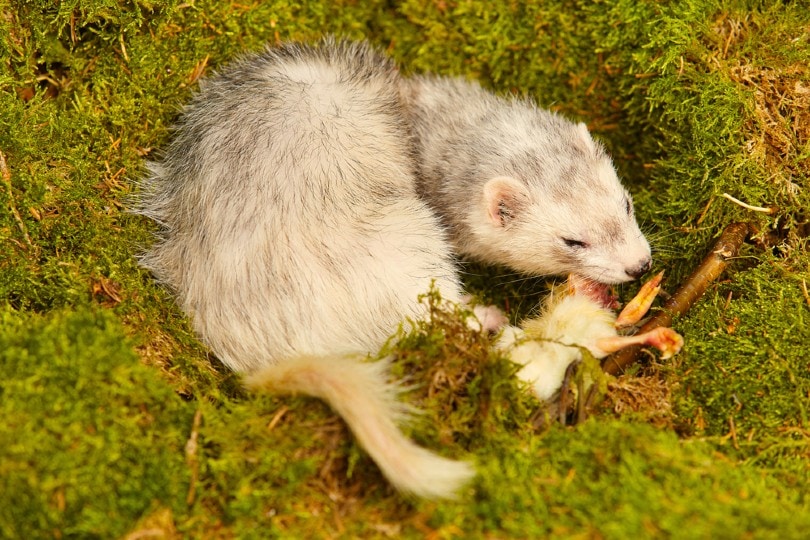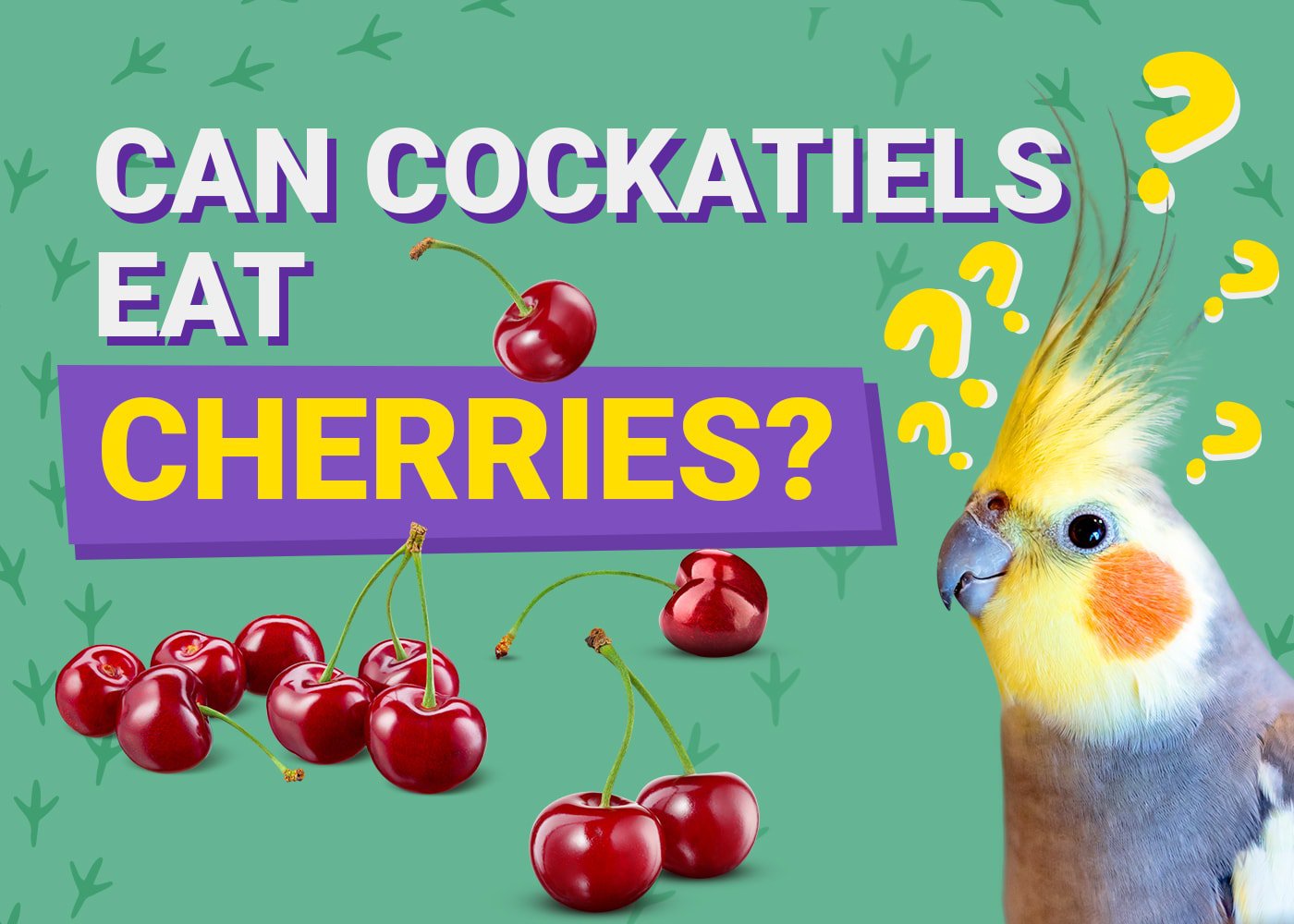VET APPROVED

The information is current and up-to-date in accordance with the latest veterinarian research.
Learn more »Click to Skip Ahead
Cats aren’t shy about sneaking a bite of unattended food, and whether it’s a hot dog, burger, or turkey sandwich, there’s a good chance they had a bit of mustard in the mix. Mustard is too common a condiment for a cat to miss if they frequently partake in human fare. But while it’s likely not an issue if they grab the occasional tiny taste, mustard is not an ingredient cats should eat.
What’s the problem with mustard, and what happens when your cat takes an accidental bite? Find out as we explore if cats can eat mustard and the issues of overindulgence.

What Is in Mustard?
Distilled vinegar and mustard seed are the primary components of most types of mustard. Additional ingredients include salt and various spices, such as:
- Paprika
- Turmeric
- Garlic powder
- Onion powder
Some of these can be toxic to cats, and therefore mustard should not be fed to cats. Many varieties may also incorporate flavor enhancers like sugar, honey, citric acid, and tartaric acid. Dijon mustard adds white wine to replace some of the vinegar content, giving it a unique taste. The essential difference between any mustard style is the type of mustard seed they use. Spicy brown mustard, for instance, uses more pungent and hotter brown mustard seeds for added kick.
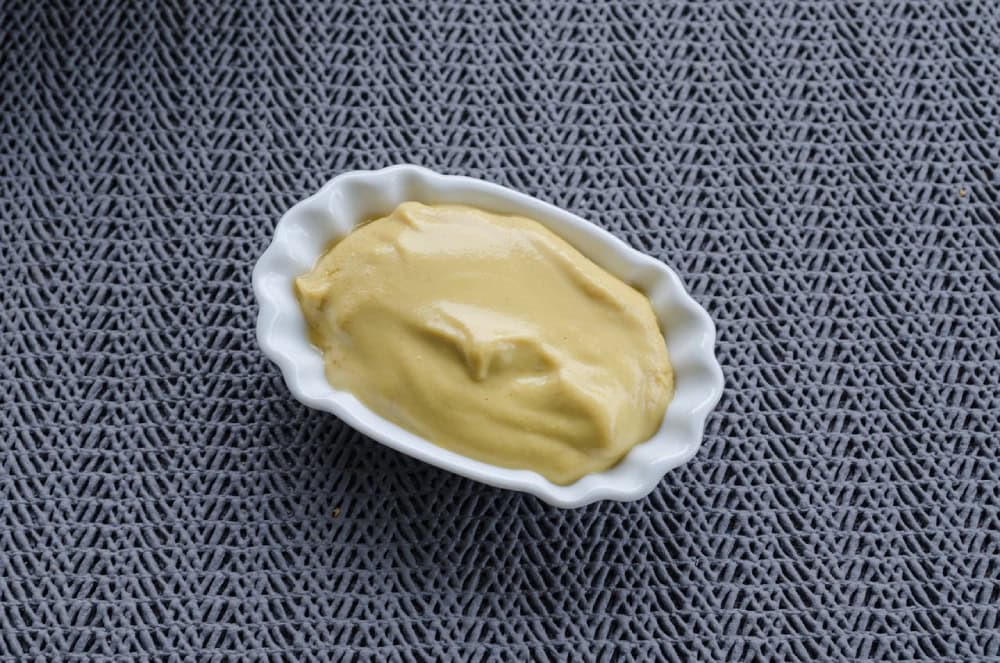
Can Cats Eat Mustard?
Even putting the toxic ingredients aside, the condiment can cause mild to severe gastroenteritis. The inflammation of the stomach and intestines isn’t uncommon with new foods, and mustard is far from a cat’s typical diet. You may notice some irritation even if your cat hasn’t eaten much. Signs of gastrointestinal upset from eating mustard may include:
- Vomiting and diarrhea
- Tenderness around the stomach
- Decreased activity
- Reduced appetite
Monitoring your pet for a few hours after they accidentally ingest mustard is vital in ensuring they don’t have a life-threatening reaction. Contact your vet if your cat exhibits signs of severe pain or food poisoning.
Do Cats Like Mustard?
Fortunately, a cat vegging out on mustard-covered foods isn’t terribly likely. Mustard’s spiciness and flavor aren’t particularly appealing to obligate carnivores looking primarily for meat. The powerful aroma advertises its heat, so your cat may not even dare to try mustard when given the chance.
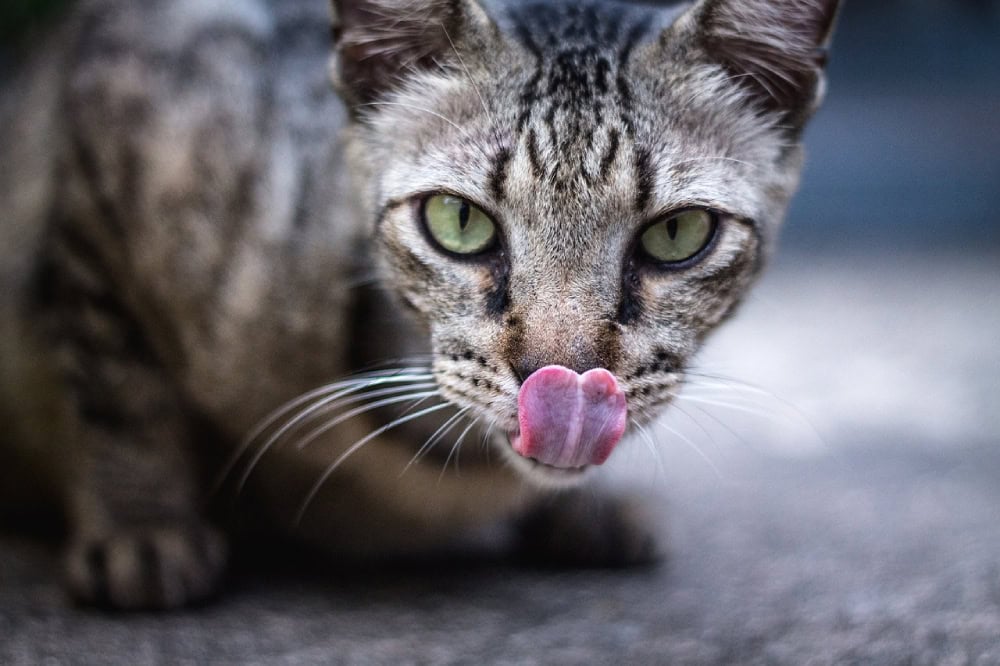
What Should I Do If My Cat Eats Mustard?
Monitor your cat for behavioral changes or GI upset for several hours after eating mustard. When your cat vomits or has soft stools or diarrhea, keep fresh water available and encourage them to drink to avoid dehydration. If they don’t show improvement after a few hours, follow up with your vet.
Knowing exactly what your feline companion can and cannot eat will help you become the best pet parent. Recognizing that not all cat bowls are equal is also key! The Hepper NomNom Cat Bowl sets itself apart from traditional options by catering to the specific needs of cats. The innovative design offers whisker relief via shallow dishes and promotes digestion with a slight bowl elevation. Find out if the Hepper NomNom is right for your cat by clicking here. At PangoVet, we’ve admired Hepper for many years and decided to take a controlling ownership interest so that we could benefit from the outstanding designs of this cool cat company!

Final Thoughts
Mustard is far from the worst thing your cat could ingest, and at the same time, it’s not healthy, can cause gastrointestinal issues, and may contain toxic ingredients. Don’t sweat your cat eating a small amount of it, but don’t encourage its consumption. Your cat won’t appreciate the flavor, nor will you enjoy the potential mess and vet visit that follows, making it well worth your time to keep your cat away from the mustard in general.
Featured Image Credit: Aleks shutter, Shutterstock
